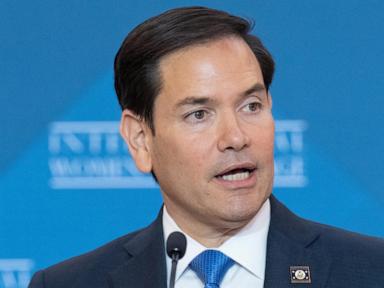For all the talk of President Trump turning America inward, this is certainly not true when it comes to Latin America. U.S. presence and partnerships to the south are being strengthened by visits from top ranking officials from the State Department, Homeland Security, the Department of Agriculture, the Southern Command, among others.
For the first time in history, a U.S. Secretary of State began his term with a tour across Latin America, not Europe or Asia but the region known as the U.S. backyard. Secretary of State Marco Rubio visited Panama, but it was not the classic protocol visit. Rather, it brought very tangible and timely results beyond expectations. The Central American nation decided to end the Belt and Road Initiative with China.
This is the first time in history, but definitely not the last, that a country stepped out from the powerful commercial and political alliance with China — a milestone overshadowed by the political agenda of the deep state and the mass media.
After Rubio’s visit to Panama, a key event took place. For two decades, CK Hutchinson, a Hong Kong-based company, had control over Panama's Balboa and San Cristobal ports. But those days are over. The American company BlackRock struck a deal to buy 90 percent of Panama Ports Company, which runs the two facilities on the Pacific and the Atlantic Oceans. BlackRock is also acquiring 80 percent ownership of 43 ports operated by Hutchinson in 23 countries. These ports are strategic for trade and security and now an American Company is taking leadership over them.
During Rubio’s visit to El Salvador, the Central American country offered to receive and reimprison criminals from MS13, Tren de Aragua, Mexican cartels and convicts from other nationalities. Salvadoran President Nayib Bukele promised to be a key partner on security, migration and fight against drug trafficking. The U.S. has also announced that it will support cooperation on nuclear energy in El Salvador to ensure an abundance of cheaper and cleaner electricity generation.
This week, during a visit to the Caribbean, Rubio put three key topics on the agenda: security, stability and prosperity. The U.S. also expressed its concerns over the extortive cooperation model promoted by Petrocaribe, an oil alliance led by Venezuela’s dictatorship, and the human trafficking scheme implemented by the Cuban Medical Brigades.
Secretary of Homeland Security Kristi Noem has also carried out a strategic visit to El Salvador, Colombia and Mexico. The partnership with these three countries is fundamental to address migration, combat drug trafficking and reduce transnational crime.
For the very first-time migration is being conceived as a crisis that goes ...










